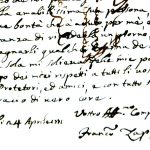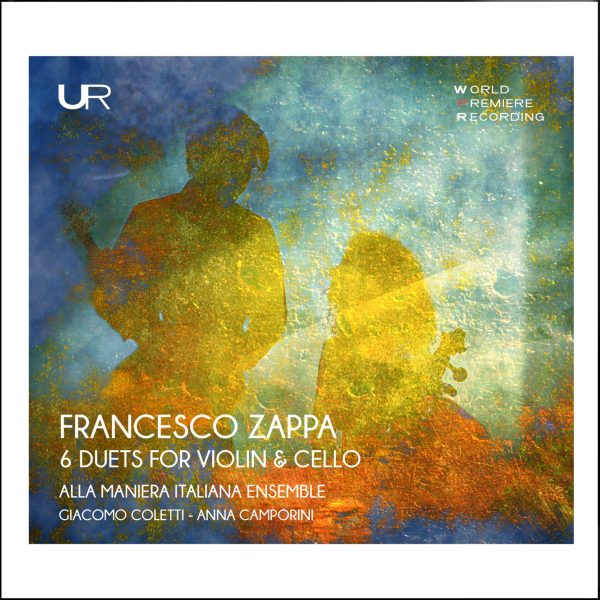Through the consolidated routes of international musicology, you can go back to
Zappa, Francesco: Italian cellist and composer, born in Milan and flourished between 1763 and 1788.
Instead, an approach that privileges the latest web resources, will lead you to discover that
Francesco Zappa, released in 1984, is an album by Frank Zappa. In this album, Frank Zappa performs on Synclavier compositions of chamber music, attributed to the Milanese Baroque cellist and composer Francesco Zappa, actually lived in the 18th century.
The academic criticique focuses on the musician lived in the XVIII century, the militant critique concentrates on the disc published 200 years after his death.
One of the most interesting contributions on the figure of Francesco Zappa, from an area certainly far from academy, is the essay The Musical Times of Francesco Zappa, wrote in 1983, just a few months before the album release by the same Frank Zappa and David Ocker, at that time a close collaborator of his: an interesting and irreverent text, halfway between the traditional form of musicological essay and the principles of H. S. Thompson Gonzo journalism. Zappa and Ocker start from real information, obtained from dictionaries and title pages of Francesco Zappa’s printed works at their disposal, then broaden it in an imaginative and wholly arbitrary way, amplifying situations and characters in order to highlight, in a caricatured and extreme way, social conventions and customs of the end of the XVIII century: particularly effective is the representation of the relationship between musician and patron, an argument deeply felt by Frank, always fierce opponent of the policies of the great American music industry and censorship associations.
The game of names
When the fifth edition of the Grove was released in the early 80’s, the musical genius of Frank Zappa was recognized even among fans and scholars of classical music, with his increasingly numerous and compelling excursions into the field of contemporary classical and experimental music (interest culminated in 1993 in the creation of The Yellow Shark). Then it seemed to be every reason why the name of Frank Zappa appeared in the illustrious dictionary, but when Frank and his staff verified its presence, under the heading Zappa they only found the forgotten Francesco. The controversy about the absence in the Grove of important contemporary artists coming from different musical experiences other than classical and often replaced by obscure unidentified homonyms of past centuries was fairly widespread in those years. Perhaps Frank Zappa too was initially disappointed to find the name of Francesco instead of his, but he always preferred irony and smart play to sterile polemic and the bizarre revelation quickly turned into creative impulse.
Thus Francesco Zappa was born, a work by which the musician could also pay homage to his Italian roots. The album sounds a bit like the electronic rearrangements of Beethoven and Rossini, conducted by Wendy Carlos for A Clockwork Orange by Stanley Kubrick: with these it shares, in addition to a profound irony, even the use of unusual and often strident sounds and timbres solutions, that certainly does not make listening easy or immediate. Frank Zappa’s humorous operation was not completely understood by critics and listeners and Francesco Zappa is still often criticized for the coldness of his arrangements: entirely understandable criticals, but the real charm of the work probably lies elsewhere, in the exceptional concatenation of events, characters and names that led to his birth, after almost 200 years of waiting. Frank Zappa managed to bring Francesco Zappa to his audience (very different from XVIII century attendance) and was not content with this: he found other Zappas that history had forgotten (Dominic Zappa, musician of Vienna in the XVI century; Father Simeon Zappa, music theorist lived in the XVII century in Bologna; Guido Zappa, mathematical; Anita Zappa, poetess) and vowed to make them known to the world.
When he died in 1993, he left a multitude of unpublished works and a great void in the music scene and contemporary culture.
Today
Leafing through the latest edition of the Grove, today you can see that the name of Frank Zappa made its appearance on the pages of the dictionary.
Just below that of Francesco Zappa…
but only for alphabetical reasons!







